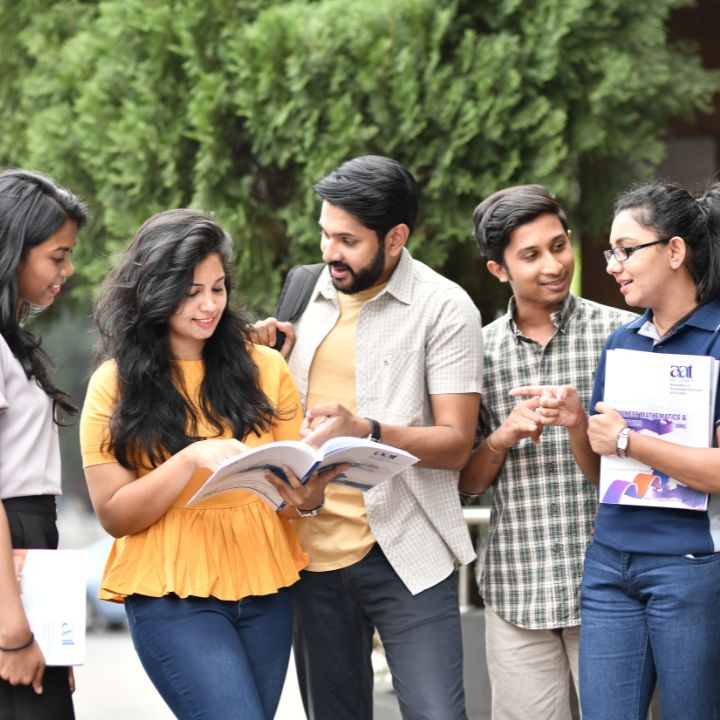Studying abroad is one of the most significant things you can do. However, the path to choosing an international education is truly filled with critical steps, and by checking, each person can lead to multiple setbacks. Here’s a much closer look at the most common mistakes that many Indian students make when applying to foreign universities, and how you can try to avoid them.
1. Starting the Process Too Late
Many of the students try to underestimate how long the application process takes. From researching courses and universities to preparing for the IELTS English speaking language exams, writing essays, and securing the financial documents, the process can take anywhere from 6 to 18 months. Delays might result in missed deadlines, limited options, or rushed decisions. Starting early can give you a proper time for you to plan, prepare, and apply to different universities that align perfectly with your secured goals, rather than just settling for whatever is left. In addition, applying early can also maximize your opportunities for scholarships, assistantships, or priority processing of visas and accommodations.
2. Applying Without Research
Choosing a university solely that's based on the rankings or where your friends are going can be a risky move. Each institution can offer a different course structure, internship opportunities, and also getting better industry connections. Without thorough research, you might end up casually in a program that does not match your career goals or in a location that can't suit your lifestyle or budget. It’s essential in making you understand the basic teaching style, faculty expertise, post-study work rights, and the right job market of the country that you're targeting. Using a well-researched application might reflect your seriousness and may help in increasing your chances of acceptance.
3. Weak Statement of Purpose (SOP)
Your Statement of Purpose is your voice that's given in your application, which shows the admissions committee who you are beyond grades and scores. A weak, generic, or poorly written SOP may hurt your chances, even if you have a strong academic credential. Students often make these mistakes by copying the templates online or using some clichés that don't reflect their real ambitions. Your SOP should be personal, clear, and authentically reflect your goals and experiences.. It should reveal your own story, your academic background, Discuss why this program and university are the right fit for you and their relationship to your future plans and career aspirations.
4. Ignoring Language and Entrance Requirements
All countries have their own language proficiency requirements, often in the form of IELTS, TOEFL, PTE, or the Duolingo English Test. In a similar way, many postgraduate programs require standardized test scores like GRE or GMAT, etc. If you are simply dismissing these as requirements, or saying it is not a big deal, you are making the wrong choice. Some students may take these exams just once without even adequate preparation by just assuming they can manage with an average score. However, many of the top universities have their strict cutoffs, and a poor score can derail your application. You need to prepare, practice, and plan to retake exams if necessary to meet the required thresholds.
5. Overlooking Financial Planning
Studying abroad is a big financial commitment. In addition to tuition, students must also deal with their visa fee, accommodation, everyday living costs, health insurance, flights, and various other incidental costs. If you are not planning for these factors, it could lead to high stress or possible withdrawal from the course. Some students also assume they will get a part-time job immediately or rely on vague scholarship hopes. Proper financial planning can involve exploring scholarships, loans, sponsorships, and part-time work policies in advance. A clear financial roadmap can ensure peace of mind throughout your academic journey.
6. Incorrect or Incomplete Documentation
This is among the most frequent — and easily avoidable — mistakes.. Each country and its institutions have specific document requirements, and even one document missing can result in some delays or outright rejection. Documents like mark sheets, degree certificates, language test scores, passport copies, recommendation letters, SOPs, and financial proofs must be accurate and done up to date. Moreover, they can either be formatted or be certified in a particular way. You must always follow the official checklists, and if you have doubts, you can consult an expert.
7. Not Consulting an Expert
While self-applying might seem straightforward, it’s easy for you to overlook the important details without proper guidance. From university selection to application strategy and visa preparation, there are numerous steps wherein professional help can make a huge difference. A skilled consultant may help you identify the best-fit programs, prepare compelling documents, and avoid some costly mistakes. Many students can approach the consultancies only after facing some rejections or problems, but then, it might be too late. The beginning of your journey is the perfect time to partner with a reputable study abroad consultancy for proper clarity, confidence and competitive advantage.
Conclusion
Get Expert Help for a Successful Application. Applying abroad is not just about filling in forms; it is building your future. By avoiding these mistakes, your chances of being accepted to the program and obtaining your acceptance visa will greatly improve. If you're committed to studying abroad, you should put some thought into working with competent study abroad consultants in Kochi, Kerala. With their in-depth understanding of university systems, visa requirements and scholarship options, a reputable abroad study consultancy Kerala can assist you at all stages, from finalising the country to arriving at your dream destination safely. Choose One Doorway International trusted study abroad agencies in Kerala that prioritizes your success first.





